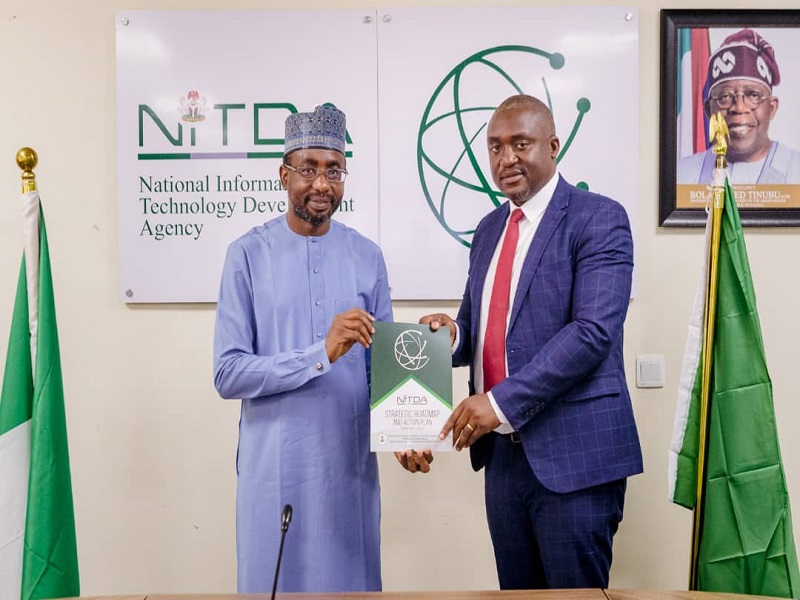A delegation from the Zambian digital economy sector has arrived in Nigeria to understudy Nigeria’s National Public Key Infrastructure, (NPKI) which the National Information Technology Development Agency, (NITDA) is the country’s custodian.
Mr. Austin Sichinga, a Director from Zambia Information and Communication Technology Authority, who led the delegation, disclosed that they decided to “travel thus far” after comparing other African countries’ models and found Nigeria’s model most adaptable.
“We are quite eager to engage and learn as much as we can here. And if you see how diverse our team is and the portfolios we traveled with, it is an indication of how much we value the project as we intend to implement it for secured transactions and ensure we are moving on the right path,” he said.
The Director informed that it is the desire of the Zambian government to move on the digital path and focus on trade with other partners adding that “one of the things that has to happen is ensuring we are ready with services and interaction with the various partners across the borders.”
While acknowledging that the implementation of the country’s PKI is long overdue, Mr. Sichinga maintained that Zambia’s President has made it known that he wants a non-stop border that will enhance data exchange, and secured platforms across institutions.
“The project is long overdue. We have to implement before that conversation on trade and interactions across various platforms within the country and across can happen. So we are really eager to engage and create partnerships so that we can begin to learn from one another,” he said.
In his remarks, the NITDA’s Director General, Kashifu Inuwa, commended the Zambian government for taking the initiative to understudy Nigeria’s National Public Key infrastructure declaring that NITDA believes that no one succeeds in isolation.
He said, “We need to work as a team, so as Africans, I think this is high time for us to come together; come up with our digital strategy because digital is beyond boundaries, it is borderless.”
Inuwa stated that the Agency has developed Strategic Roadmap and Action Plan, (SRAP) 2021-2024 with seven strategic pillars, and PKI falls under the Developmental Regulation.
He noted that regulation from the Agency’s perceptive is “any intervention that can influence the business social or market behaviour” adding that NITDA regulates to enable innovation and not to stifle it.
Speaking further, the NITDA’s boss explained that the Agency is developing a regulation on PKI because the law that established the Agency empowered it to do sub-legislation.
He said the Agency has developed the business model, but it would not get into the operational aspect of it. “We don’t want to get our hands into operation. We provide only the Certificate Authority (CA) route. We will have some sectoral CAs that will provide the certificate for different sectors.”
“We are looking at how we can commercialise some services like the digital trust as well because that will also help build trust and confidence for e-commerce because even in Nigeria, we have this challenge; most of the western countries don’t trust our websites because nobody’s certified them. So you need the PKI solution to certify those websites to build trust publicly,” he added.
Inuwa asserted that the Agency would not dabble into the operational aspect of PKI because the Agency is established as a regulator but would put a product development unit in place because there is a need to build more solutions.
While taking them through other strategic pillars of SRAP, the Director General tasked them to develop policy documents that would serve as a guide in monitoring and tracking progresses in the implementation of the PKI and other digital transformation they are working on.
Inuwa recalled that Ghana, Gambia, and Kenya had visited the Agency to learn from what it is doing noting that those visits are motivation to the Agency because it shows that those “moderate things” are being acknowledged by people outside the country.
He however disclosed that the Agency is working on developing a playbook that would be shared among other African countries in order to achieve a strong digital economy for the continent.
While enjoined the delegation to initiate approaches that would make Zambia digitally independent, the Director General advised the country to build the capacity of its citizens.
Earlier, the NITDA’s Director of Information Technology Infrastructure Solution, Dr Usman Abdullahi Gambo while giving an overview of the Agency’s mandates disclosed that the Agency is saddled with the three major functions of developing, regulating, and playing an advisory role to the government on Information Technology in the country.
He said the Agency’s journey to the implementation of the NPKI started as far back as 2012 which has culminated into the substantial progress it has recorded.
The Cyber Security Department, whose one of its functions is the management of the NPKI, in a presentation to the delegation said NITDA is in the best position to act as the National Root Certificate Authority because the Agency remains the Information Technology regulator for the country.
The presentation which was handled by the Acting Director and the Assistance Director in the Department, Dr. Lawal Muhammed and Mr. Ahmed Yahusa respectively revealed the benefits, architecture, policy, implementation strategy, type of certificates, and stakeholders of the NPKI.
The highlight of the engagement was the tour of facilities in the Agency.

